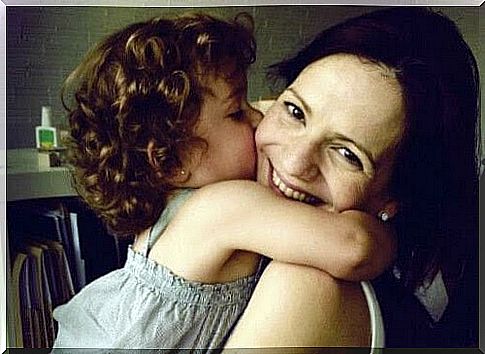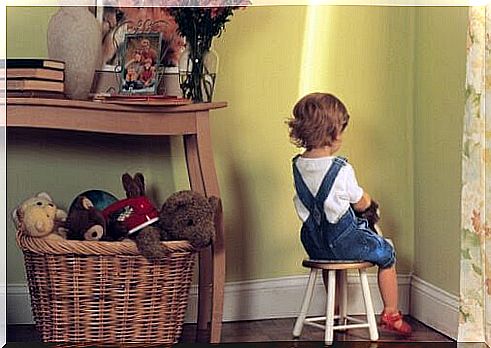The Easy Way To Help Difficult Children

So-called “difficult children” are often singled out, labeled and poorly understood. Not true? And yet, they are the very children who need our help perhaps more than others.
It is really true that this is a very difficult scenario to handle, but today we will try to help you with that.
We will give you some advice on how to help these very needy children. Do not worry! It will be pretty easy! At least easier than arguing with these difficult children. You just have to give us a little bit of your attention, that’s all!
Caught and with no way out of sight… this is how these children feel. They feel locked in and isolated in their own little world, trapped in a shell that does not allow them to express their fears.
Airtight, no doors, no windows, not even the slightest crack. Therefore, it is up to us to patiently find a way to liberate these powerless children.
How to help difficult children
First of all, if you want to help a child with this problem, you need to spend quality time with them, mixed with a great deal of patience. Maybe you already know this, but it never hurts with a little reminder.
What is very clear is that all our efforts will be well worth it in the end.
All the attention we give to the child will give positive results and will shape them into better people in the future.
Both fathers and mothers are often overwhelmed by the circumstances and see the task of raising difficult children as a kind of challenge.
But if we see it that way, we will indirectly see raising our child as a heavy burden for us, and it will make the work much more difficult and difficult.
On the other hand, if we change our way of thinking and approach it in a more positive way, the path will be much easier.
Parents are often frustrated by the uncertainty caused by not knowing how to act properly. Until now, nothing seems like they have tried to work. But let’s try to stay calm, because even the best solutions do not always have immediate effect.
The restlessness that the outside world generates in a difficult child, he then usually expresses in a wrong way. Outbursts of rage, anger and aggression are accompanied by crying, insults and defiance. The little child simply gets rid of his tensions and worries as best he can.
Manage emotions
The so-called “difficult children” are those who have not yet learned how to deal with their emotions. Because of this, their behavior towards others seems unacceptable.
All they try to do, however, is defend themselves against the outside world. A difficult child can often experience the world in such a hostile way that the only way he can react is defensive. That’s the only way he knows.
To help a difficult child, you do not have to make your life very complicated. In fact, what we are going to explain to you will actually make your life a lot easier.

We are all different, unique and irreplaceable.
Because of this, all the old advice we receive may not necessarily be the right advice for us.
Despite the good intentions that people may have when sharing their advice, it is best to always consult a specialist and consider professional recommendations.
Why? That way, from the beginning, you will avoid using a formula that may have worked for another child at some point in his life, but will not benefit your particular child. At least not at the moment. Maybe later. An expert will tell you when and how to proceed.
Our first piece of advice is very simple: stop saying that you have a problematic or difficult child. Yes, you read that right. And here comes another revelation: difficult children DO NOT EXIST!
No problem!
The words we choose to use, consciously or unconsciously, define how we as humans grow emotionally. The word “problem” does not sound attractive, nice or good in any way.
If you decide to use another word, it will be much more beneficial. For example, the word “situation” simply means a set of elements in certain particular circumstances. A temporary question. Just one stage.
The most important thing is to focus on maintaining a positive attitude. Always look for the solution instead of just studying the “problem.” We must move forward no matter what situations arise, because you have no choice: you only live once.
Considering the problem as just another stage will immediately benefit us.
We immediately feel that we just have to get through this, albeit trying, stage, where we simply need to look for some kind of tool to be able to move on. Doesn’t that sound better?
A problem, on the other hand, sounds like something we have to stop because it is something that is wrong. This “bad” thing releases negative emotions and reactions: fear, anxiety, stress, sadness, among others. Not good!

A positive attitude frees us from feeling or accumulating stress and frustration.
Secondly, our advice to you is to be patient with yourself. As a mother, you must also take care of yourself, so that you in turn can be your child’s helper as he goes through this stage of life.
If you talk to a specialist, explain to her how you feel, what you think and everything else you want to tell her, so that you can maintain a healthy emotional life.
There is something you must always keep in mind: all children need patience, love and understanding.
But if you do not know how to love and understand yourself, and if you do not have patience with yourself, you will not be able to offer these qualities to your child.
Understanding his or her feelings is the key to success. It does not have to be complex. The most likely is that the child will resist first, until he realizes that he does not have to be on his guard all the time and that no one and nothing will harm him.
The secret is to create solid bonds based on constant communication and unconditional love. Under no circumstances should you let him isolate himself.
Do not neglect your child, he needs you more than he needs anyone else. If you take care of your child and show him your unconditional support, you will realize that his love will grow bigger and he will give back three times over.
But be careful! This reward is not the reason to help him. Your goal must be to just see him happy and happy.
It’s a winding road
Without a doubt, you are walking along a winding road. For this reason, you must always radiate security and safety so that your child will feel safe when he expresses his repressed feelings.
Only in this way will he be able to get to know himself and be able to express himself with absolute freedom and in an appropriate way.
Also, avoid looking for a scapegoat. There are no guilty parties here. Difficult children are not necessarily a product of poor parenting.
If your child needs extra attention, understanding and support, then give it to him. If you do not, he will feel overwhelmed because he simply does not know how to avoid behaving in a “bad” way.
Helping a difficult child primarily means finding the most creative strategies to meet their needs. The focal point is nothing more than helping him deal with the emotional tsunami that washes over him.
For this reason, you should work to increase your child’s Emotional Intelligence, which is his ability to channel and externalize emotions:
- You work with positive reinforcement, because this has proven to be a very powerful tool to help difficult children. Do not focus on the mistakes, because it will only increase the child’s anger and frustration. Express confidence and trust in him, radiate security. Say positive words to him when he does things well.
- Try to encourage communication without condemning, comparing or labeling. Avoid lengthy interrogations. You just have to find the right moment to have a little conversation with him with love and empathy. Communicate with a friendly tone, calm, sincere and with a calm voice.
- Never incur debt or humiliate him, nor should you use irony.
- You should aim to achieve an inner balance in the child. Get the child to vent their feelings with words. They should try to share what they feel in the right way, to get an outlet for them. Let them ventilate their emotions and in a controlled way, with the certainty that you will always be willing to listen to them and give them advice.
- Try to teach them relaxation. This is absolutely necessary if we want to help a difficult child. Teach him to breathe deeply and to channel his emotions through various methods and techniques to properly ventilate his emotions and address the problems. Teach him to listen and tolerate the frustration he feels.
By following these steps, you should be able to see that you will soon make progress, and that your child will soon manage his emotions in a much more controlled and positive way.









